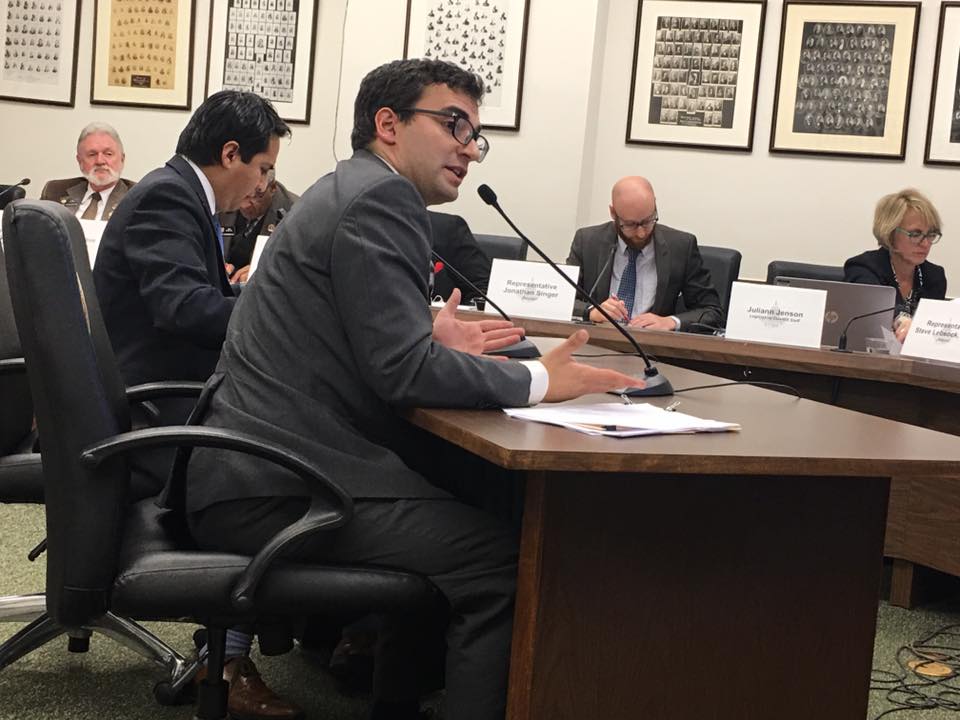A summary of the list of recommendations on the implementation of the OBBBA in Colorado regarding public benefits systems and work requirements.
Recent articles
CCLP testifies in support of Colorado’s AI Sunshine Act
Charles Brennan provided testimony in support of Senate Bill 25B-004, Increase Transparency for Algorithmic Systems, during the 2025 Special Session. CCLP is in support of SB25B-004.
Coloradans launch 2026 ballot push for graduated state income tax
New ballot measure proposals would cut taxes for 98 percent of Coloradans, raise revenue to address budget crisis.
CCLP statement on the executive order and Colorado’s endless budget catastrophe
Coloradans deserve better than the artificial budget crisis that led to today's crippling cuts by Governor Jared Polis.
Solving Problems: How CCLP Gets Stuff Done

What if you only had seven days to find a different place to live, pack up and move all of your possessions, relocate your family and enroll your kids in a new school? Unfortunately, in parts of Colorado where landlords know they can get higher rent from wealthier tenants, people with fewer resources find themselves in this predicament every day.
Before CCLP took action, landlords in many circumstances were only required to give tenants seven days’ notice before they raised the rent or terminated their lease. Those surviving on low wages and fixed incomes faced a high risk of homelessness under such arrangements.
An organization that represents low‐income Coloradans brought this problem to Colorado Center on Law and Policy’s attention last year after an elderly client on a fixed income received notice that rent for her apartment was increasing to an amount she could no longer afford. After doing some research, CCLP determined there was nothing to prevent this from happening to this client and thousands of other Colorado renters. Later, CCLP suggested legislation addressing the issue to Rep. Dan Pabon, D‐Denver, who was looking for ideas to mitigate the destabilizing effects of gentrification in Colorado neighborhoods.
Before starting the process of developing a bill, CCLP Executive Director Claire Levy asked CCLP Policy Associate Jack Regenbogen to look into landlord‐tenant laws in all 50 states. After spending a full week researching rental‐ notification statutes, Jack found that Colorado was among only three states that had such a short period of notice. That tidbit ended up being a major talking point in building support for legislation.
CCLP then began working on a bill to extend the notification period on month‐to‐month tenancies, but the bill was killed in a Senate committee. Gearing up for the 2017 session, Jack and other CCLP staff began building a diverse coalition, which included veterans, disability and senior advocates, members of the faith‐based community, the City and County of Denver and even a property‐management company. Jack woke up early many mornings to make the case for the bill to numerous organizations.
While developing the 2017 Notice to Quit bill, CCLP convinced the Colorado Apartment Association to go “neutral” on the proposal by compromising on the new notice period. Instead of requiring 28 days, which would have been far more desirable, we agreed just to require 21 days’ notice – still a three‐fold increase. Having averted opposition from the powerful apartment lobby, Sen. Kevin Priola, R‐Henderson, agreed to sponsor the legislation and was able to avoid having the bill sent to the “kill committee” in the Senate.
As a result of this collaborative effort, Senate Bill 245 passed with broad bipartisan support in the Colorado Senate. It also cleared the state House and was signed into law by Gov. John Hickenlooper. As the story of SB 245 illustrates, getting legislation passed requires hard work, thorough research, ingenuity, strong relationships within the community and compromise. SB 245 is just one of several policy successes that CCLP cultivated this past session, each of which required similar effort.
-By Bob Mook
